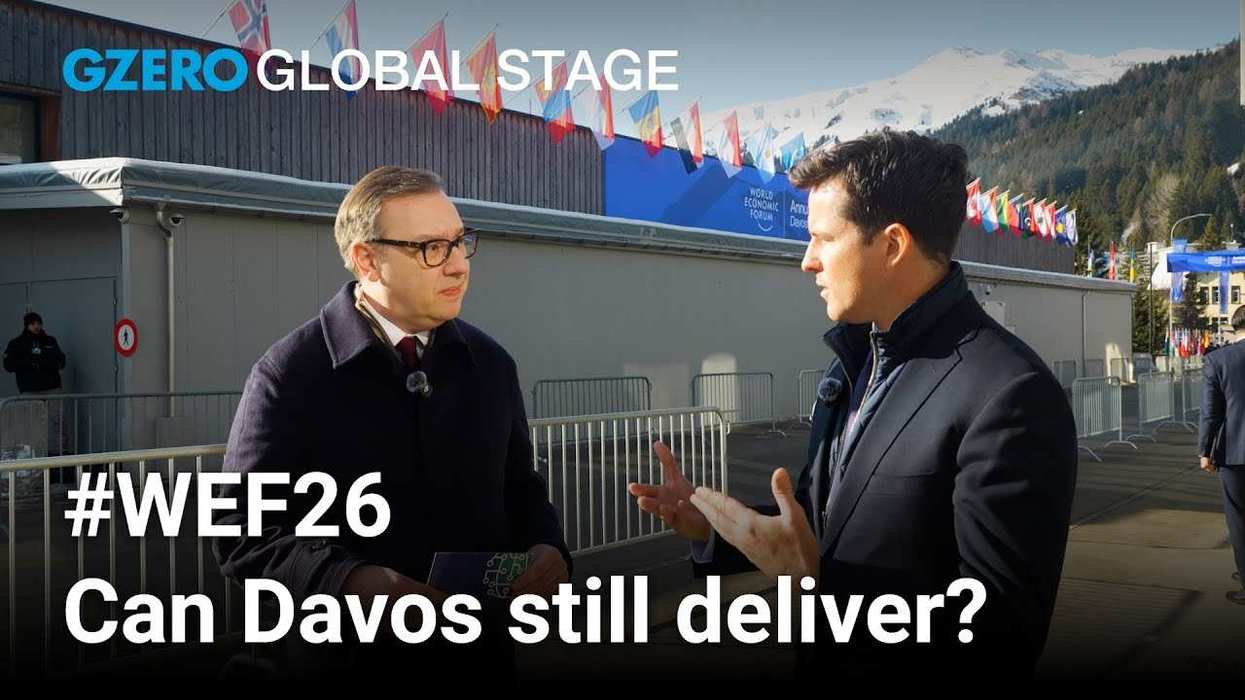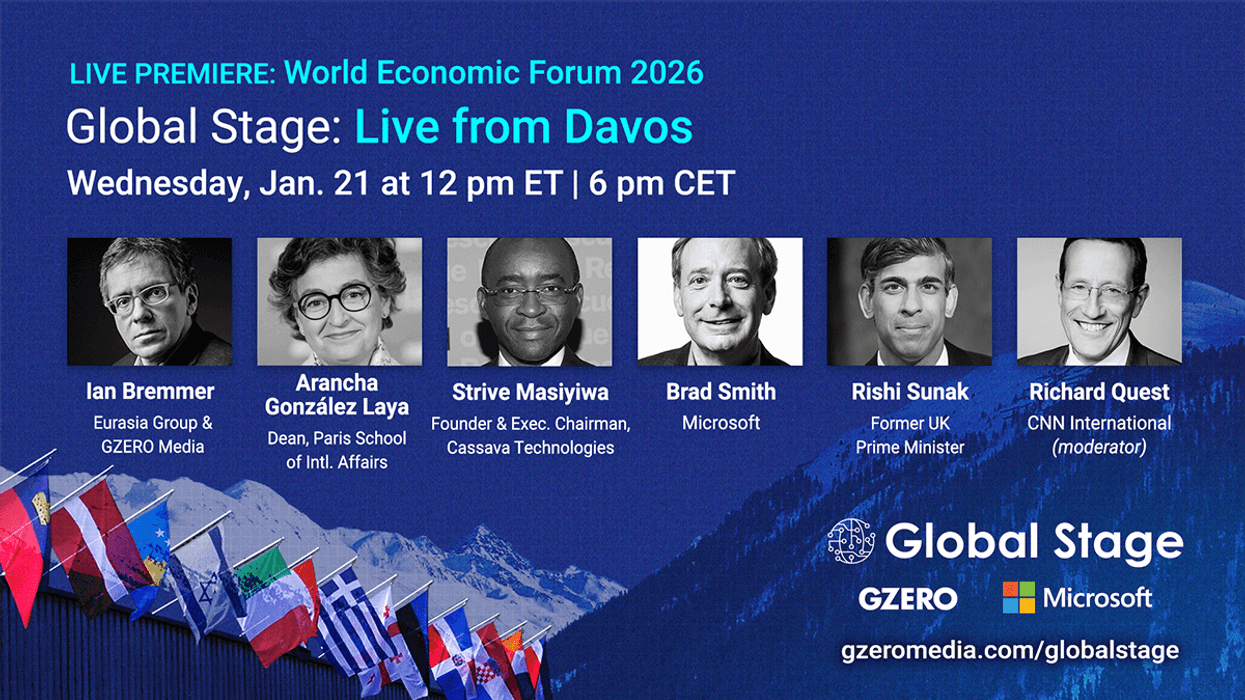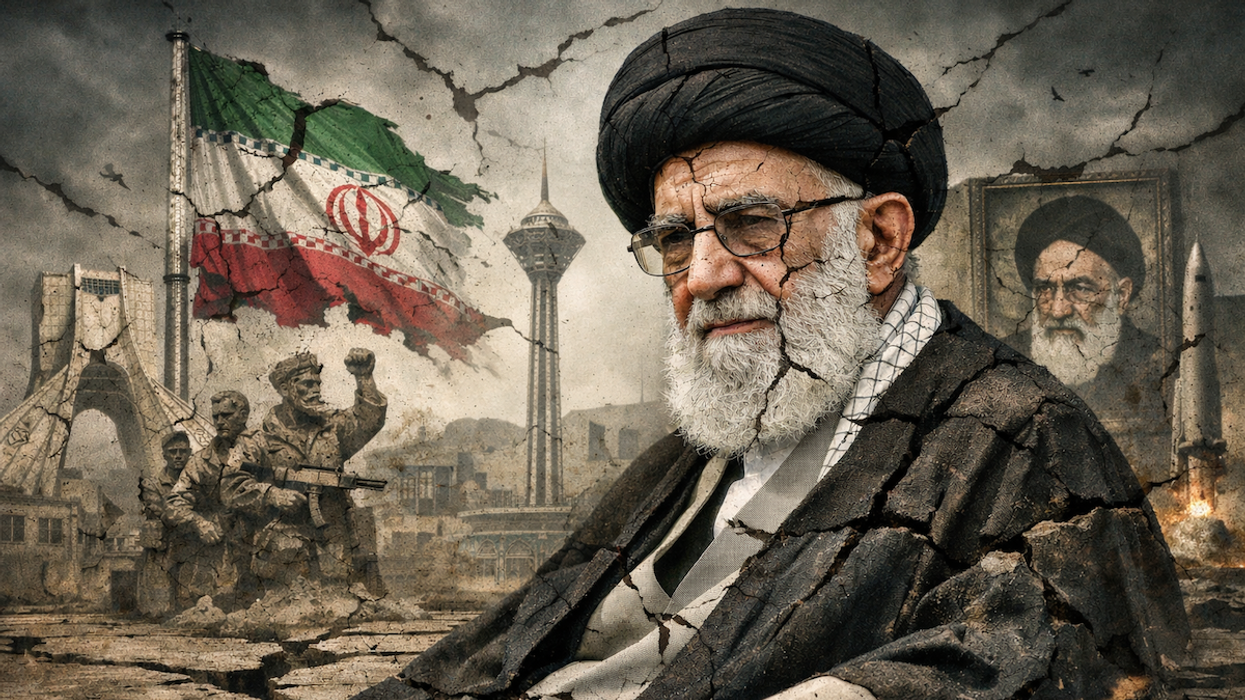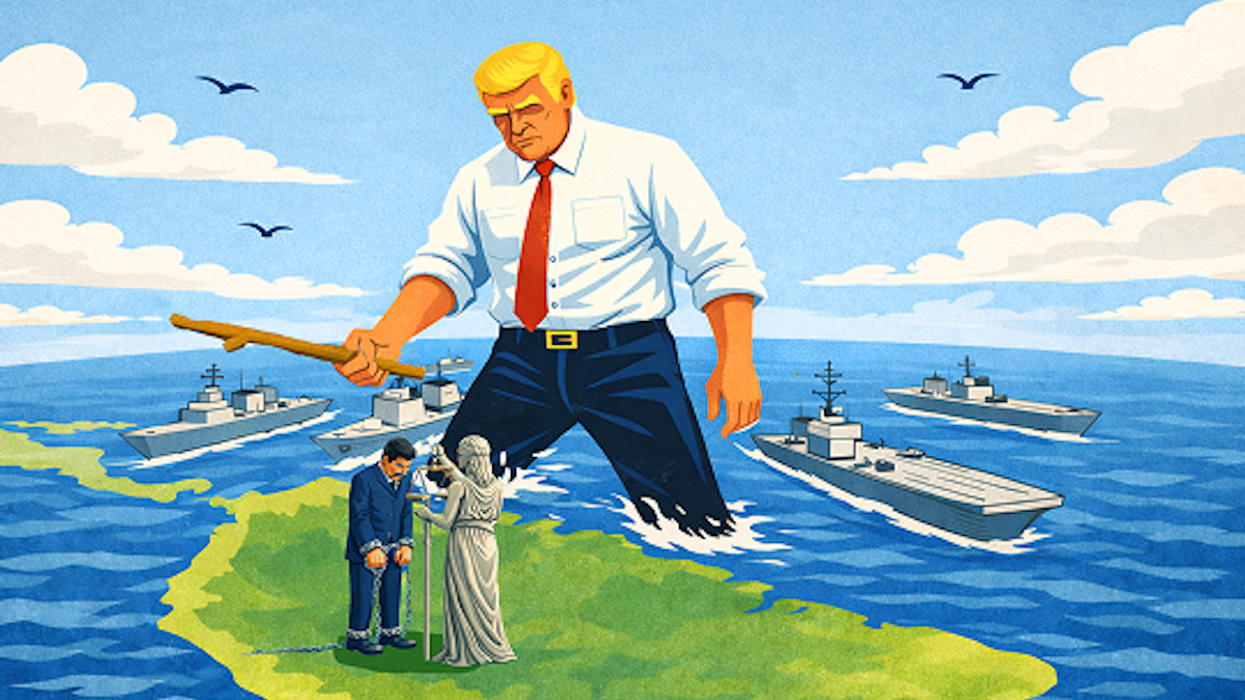Last week, I had the privilege and pleasure of serving as commencement speaker for graduates of the School of Liberal Arts at Tulane University, my alma mater. And the venue was the Louisiana Superdome, a little bigger of a house than I’m used to.
It was a great day for me, and I’ll always be grateful to Tulane for the invitation. But it was a sobering experience too. It’s one thing to look out over a crowd of this year’s graduates, young women and men who are well prepared for challenges ahead but who may not yet appreciate just how messed up our world is right now. It’s quite another when you’re looking into the faces of this year’s graduates of your alma mater. The people who now sit where you sat. It makes me more aware of how just much has happened on the road from 1989 to 2025 – how much we couldn’t have imagined.
Here's the speech in full…
It’s great to be back at Tulane.
And I'm honored to be your distinguished alum.
I realize it's possible you've decided to give me this award because you neglected to look into my time here as a student.
I was 15 when I came to Tulane, a kid from the projects outside Boston. I went to an all-boys Catholic high school. This led to an unusually exciting freshman year. I lied about my age, both for drinking purposes (which I had never done before), and also for dating purposes (which I had also never done before).
I missed classes, slept through a final, had a 1.9 GPA my first term. When they put me on probation and threatened to send me home to Boston, I figured I should spend less time at the Boot and more time in my classes.
In the end, I graduated without further public controversy. For me, Tulane was a laboratory of people and personalities, of studies and learning, of theory and of facts on the ground. I have the school of liberal arts to thank that I can tell the difference.
But when I graduated, I realized that no one actually hired political scientists, and so I decided to start a company to persuade people that political science mattered. Thirty years later, I've made a career of it. I’ve made it possible for at least a few political scientists to have jobs doing just that.
I suppose that’s the reason I’m receiving Tulane's distinguished alumni award (and truly, I am honored by it). But at the same time, I am a little bummed out about it, because compared to pretty much all of the parents here, I am failing most dramatically in my broader professional efforts. It's tough to be a political scientist right now. The stuff I work on — helping understand political leaders, governments, the world order — it's all falling apart.
Back when I graduated this was not true. I was class of 1989. That's the year you want to graduate as a political scientist. The Wall came down. We won the cold war. Collective security, free trade, rule of law, democracy. For everybody.
The problem is that we were winners, but we weren't leaders. The leaders were the people that won back in World War II and that created the world order on the ashes of that destroyed world. The Marshall Plan to rebuild Europe, General MacArthur rebuilding Japan. The United Nations. The US-led global order.
Today, we've grown too comfortable as the most powerful country in that world, with the almighty dollar, the only global military, the top global businesses, and the best universities. We are in the most stable part of the world, with generally friendly neighbors (at least until we started fighting with them). Protected by both great oceans.
For generations now we have been the most privileged nation, but our own political system has become the most dysfunctional among rich democracies. Most everyone agrees on this. We even agree on who to blame. It's the “other guys.
So, what are we going to do about it? I use my voice to be speak up about it. We can't fix a problem until we identify it. I get things wrong, but I say what I truly believe in the hopes that helps other people do the same.
Because when we stand up, when law firms stand up, when universities stand up, courage is contagious. We have to show people a way.
Tulane class of 2025, what will you do about it?
First, you already have. You chose the liberal arts, which means, at some point, you made a conscious decision to pursue ideas over income – at least initially. It’s brave. It’s noble. It’s…confusing to your family.
But what you’ve been doing here matters, because while engineers are out there designing drones, you’ve been asking the more important question: who gets to decide where they fly? While business schools are simulating markets, you’ve been asking: who is this economy actually working for? While accountants are balancing the books, you've been asking: why do we pay taxes?
Let’s talk about the world you’re walking into. It’s no 1989, but it’s lively. We’ve got a climate crisis, a technology arms race, and a bunch of hot wars. We’ve got global alliances falling apart, superpowers behaving like exes who keep texting each other at 2AM, and a US domestic political environment that feels like a mad libs game with too many sazeracs.
But I’m not here to depress you. That’s what Twitter’s for.
I'm here to remind you: this is your moment. And no, not in the “you are the future” way that commencement speakers love to say before the parents applaud them. I mean you actually have an edge. You studied complexity. You learned that history doesn’t repeat, but it does plagiarize. You know that “unprecedented” really just means we didn’t study the past closely enough. You know that context is what matters, and that headlines don't tell the story. In a world of polarization, you’ve studied nuance. In a time of information overload, you’ve practiced discernment. In an age obsessed with outcomes, you’ve explored meaning.
Hopefully you have also learned along the way that -- ChatGPT notwithstanding -- hard work does pay off.
So, let me point out that all of those skills I just mentioned don’t just make for good leaders. Those skills make for good people.
Understanding complexity, believing that there is value in the truth, seeking the good in people, and looking beyond the moment right in front of you. Those are skills you need for life.
And you’re in it right now. A lot of ambitious young people set out these markers of achievement for themselves, and of course you’re sitting here on top of a big one. Having achieved one, you push for the next, and so you might think my real adult life begins when I get my first job, when I get out of grad school, when I buy my first home. Don’t do that. Your real adult life is already here. You’ll make mistakes, and you’ll have regrets. But you grow from them.
If you stay true to the skills and values that you’ve learned here, if you care about the family and friends that have moved you forward, your life will be rich, whatever path you choose.
So, what should you do with your liberal arts degree? Whatever you want.
Some of you will go into journalism, helping us understand a world spinning faster by the day. Others will work in policy, trying to keep the world from setting itself on fire – literally and metaphorically. Some will become artists, storytellers, teachers, nonprofit leaders, or the only ethics advisor at a tech company full of Stanford dropouts. That job will be important.
I’m not saying it’ll be easy. Your algorithms will try to convince you every day that nuance doesn't matter, and that more stuff and money will make you happy. Fight against that. Stay curious. Stay human. Stay weird, but the good kind of weird – the kind that doesn’t let cynicism turn into detachment.
And please, when you start running things – because trust me that day is sooner than you think – remember what you learned here: that ethics without power doesn't accomplish much, and that power without ethics is what got us here.
I'm counting on you, Tulane graduates. I’m counting on you to be as welcoming to weirdo strangers as you were to me as a 15-year-old freshman.
I’m counting on you to use new technologies, especially AI, that allow for innovation—improving your own capabilities—inconceivable when I graduated.
I’m counting on you to be curious as the world changes around us, to connect more closely with those that are different from you, and to recognize your connections with one another in spite of those differences.
I'm counting on you to be admired not because of your money and privilege but because you act the way others know they should.
I'm counting on you to be inspiring not because of your charisma and personality, but because you set the standard. I'm counting on you to be leaders again. Because if you don't, we're leaving it to the finance majors.
Tulane graduates, I believe in you. My thanks for giving me the opportunity to tell you that.
And congratulations to you on this most important day.


















